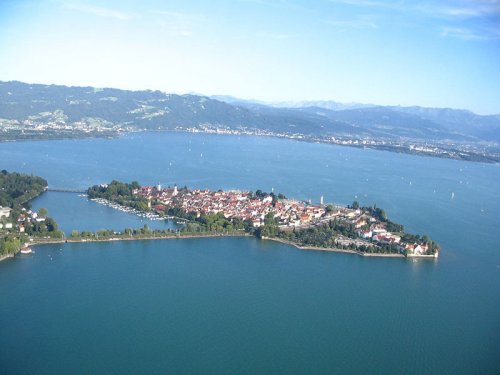
(Photograph courtesy of Edda Praefcke)
By João Medeiros
Part of my job as Features Editor on Physics World is to dig up great ideas for possible feature articles. That’s one reason why I am spending this week on an island in Lake Constance in southern Germany at the 58th meeting of Nobel Laureates at Lindau.
The meeting, which is held every year, gives top young students the chance to hear, talk to and debate with leading researchers from a particular field of endeavour. This year’s meeting is dedicated to physics and there are some 25 Nobel-prize-winning physicists here as well as over 550 students.
Yesterday we were treated to a fascinating debate about the Large Hadron Collider (LHC) at CERN, featuring Nobel laureates David Gross, Martinus Veltman, George Smoot, Gerhard ‘t Hooft and Carlo Rubbia, along with LHC accelerator supremo Lyn Evans and CERN chief scientific officer Jos Engelen.
Chairing the session was my predecessor in the Physics World features hot-seat Matthew Chalmers, who is now forging a career as a freelance science journalist.
Some speakers, like Smoot and Gross, preferred to talk about the hope that the LHC will yield a cornucopia of new physics , prominently of Higgs bosons and supersymmetric particles. Others, like Veltman and Rubbia, took a more cautious stance as to what might be discovered.
The experiment itself is a complex beast and will take years before the experimentalists understand it completely. The computing challenge is also gargantuan: the proton-proton collisions will yield some 109 events per second, of which only 200 can be saved into a disk.
This means there is a huge responsibility on the shoulders of the thousands of young researchers working in the bowels of the LHC to make sure that the interesting events are the ones that get saved into the computing grid.
As Rubbia told the meeting: “The discussion about the Higgs is not the right discussion at the moment. This is a very complex machine, and presumably, it will take years before we understand it properly. One should let the physicists do their work instead of pressuring the scientists for results.”
I hope to tell you more about what’s been happening here on Lake Constance later this week. Meanwhile, back to those Nobel laureates…



